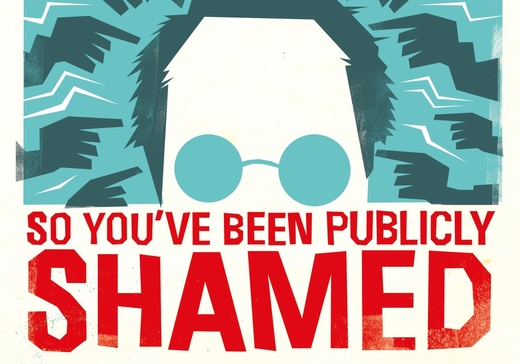I’ve recently read the book “So You’ve been Publically Shamed” by Jon Ronson. It is an eye opener about what we think people are like and what we are really like.
Confrontation may happen from an individual or from the community. A village, a church, or the whole country may react to knowing that there’s a problem. The community then looks to shame the person for their actions.
For example, the book talks about one woman who put up an ironic social media message as she flew from the states to South Africa about the inequality in healthcare between the two countries … only to find that people took it literally and were boycotting her visit by the time she landed.
- Why do we shame others?
- What does the public expect as a response?
- How might we deal with it … and it’s not what you think it is?
Why do People shame others?
- When life is tough, you don’t want your neighbour “to get away with it”
- It reinforces prejudice. We define the boundaries of normal by tearing apart people outside of it.
- “I thought I was going something good at the time” – either public moral boundaries, or the message of what’s good (e.g. Communist children ‘grassing’ up their parents)
- It gives power to the people who feel powerless – they can make others suffer, when they feel they have no other control
What’s it like to be shamed?
- Benjamin Rush (1787) said “Ignominy (being) universally acknowledged to be a worse punishment than death” – it’s not fun.
- It feels like a false identity has been set up for you and that is destroyed but it is one with has your name one it
- Anything you do is seen through the lens of this false image
- It causes radical change (changing home, being hounded out, therapy)
- It creates fear and paranoia – like being in a Stasi culture where people feel constantly under surveillance, and people are afraid to be themselves
- There is no door – no way back in. ‘We don’t offer forgiveness’
- “While shame is initially painful, constant shaming leads to a deadening of feeling – and when it reaches overwhelming intensity, shame is experienced, like cold as a feeling of numbness and deadness ” (James Gilligan, Violence 1999)
- You become a toxic source – people distance from you for fear of guilt by association, or contamination
- It’s not shame; it’s humiliation
What does the public expect in response?
- “Americans want tragedies with a happy ending” – There is a narrative they want you to follow
- A full apology and take ALL blame (letting others off the hook, if necessary). For example, the Japanaese parents who left their kid by the side of the road when he wasn’t behaving.
- Show complete collapse, and then build up with help from others
- A simple world of Heroes and Villains – so which one of those are you?
- They want an emotional ‘I am the worst’ response – Don’t intellectualise it. They want you to be emotional. Don’t explain the ‘normal’ human condition; it makes it too close for comfort.
- They want a public humiliating apology – “I am sorry” (with no explanation)
- They want their own narrative
- “I feel that a really public shaming or humiliation is a conflict between the person writing his own narrative and society trying to write a different one. One story, tries to overwrite the other.”
Tips to survive:
- Society doesn’t like hypocrites:
- If you try to be a good person – then you’ll need to eat humble pie
- OR if you can be seen as a ‘charming cad’ – then make the failing part of your identity and links to a cultural principle (consent, diversity etc) and not shy from it (Max Mosley).
- OR be defiant. Don’t budge and show the critics that their fury is useless. Stand tall until the media moves on.
- To survive you need to create a third narrative – that can allow the public view to change
- For some woman, moving the story to their uncomfortable upbringing or how they suffered, can allow the narrative change to ‘it wasn’t their fault’
- The audience doesn’t necessarily want an apology. “For someone to make an apology, someone else has to be listening”. They listen, and you speak and there’s an exchange. That’s why we have a thing about accepting apologies. There’s a power exchange that happens. But they don’t want an apology. What they want is destruction of the person. They never want to hear from me again for the rest of my life and while they’re never hearing from me, they have the right to use me as a cultural reference point or whatever it serves.
- Use it to bring people closer. To accept the shame and find another path.
Shame and Perspective
Consider the answer to these three questions:
- What’s the worst thing that you have ever done to someone?
- What’s the worst criminal act that has ever been committed against you?
- Which of the two was the most damaging for the victim?
So when you feel outraged for someone else’s actions – what’s your motivation in that reaction?
It doesn’t mean that another persons action isn’t wrong; it just helps us stop ourselves being part of the ‘baying mob’, and gives perspective.
For more information try
http://www.jonronson.com/shame.html
